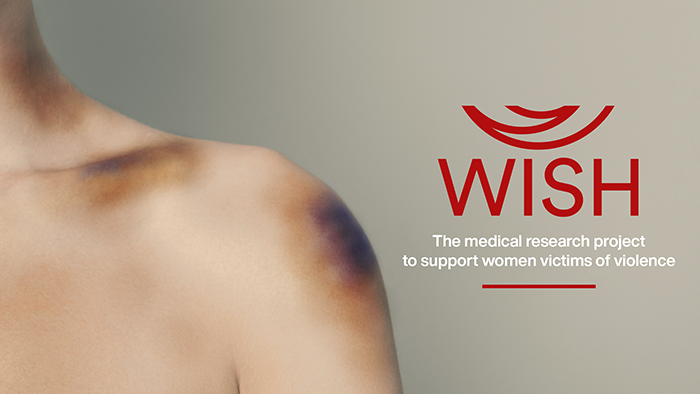WISH - medical research project

SUPPORT MEDICAL RESEARCH FOR WOMEN VICTIMS OF VIOLENCE
Within the context of the fight against gender-based violence, the University of Padua is taking a leading role with "Wish - Women Intimate Shelter," an innovative medical research project that analyzes the physiopathological consequences on a woman's body following violent behaviors by a partner.
Intimate partner violence (IPV) affects all genders in various ways, but women are more frequently and severely affected. According to Istat data, nearly 7 million women in Italy have experienced physical and sexual violence in their lifetime, with 652,000 of them being raped, a crime committed in 62.7% of cases by the partner.
In addition to the traumatic injuries inflicted by physical violence, IPV can lead to the development of many pathologies, including migraines, pelvic pain, anxiety disorders, depression, insomnia, ulcers, and cardiovascular diseases, and can increase the incidence of cancer and neurodegenerative disorders.
Despite alarming data, there are still too few scientific studies on the subject.
For this reason, the research group at the Department of Biomedical Sciences, led by Dr. Jacopo Agrimi and Prof. Nazareno Paolocci, has chosen to start an innovative research activity with the aim of:
- Investigating the biological mechanisms that explain the increased risk of developing cancer and cardiovascular, psychiatric, and neurological disorders in women victims of violence;
- Finding a common pathological trait that explains the diseases induced by IPV in multiple parts of the body;
- Testing new pharmacological treatments, based on a gender-specific approach, and more effective over the long term.
It is an ambitious research project that requires substantial investment, which is why, along with the commitment of the University, the help of everyone is essential to ensure that the research progresses smoothly and can translate into treatment, providing tangible assistance to millions of women in Italy and around the world.
Donate to the Wish project, your support will allow us to strengthen the research group by recruiting new researchers with multidisciplinary skills and supporting the significant expenses for the purchase of innovative equipment and reagents for laboratory tests.



